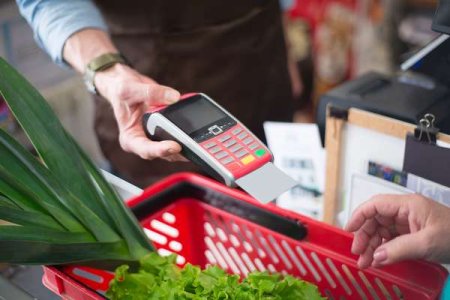Are Banks Forcing You to Go Cashless? Commonwealth Bank & Westpac Close Branches Amid Controversy
Take a moment and recall your first foray into the world of banking.
Sunny days spent queuing in your local bank, waiting for that friendly teller who knew your name and provided that human touch to an otherwise intimidating transaction.
Now, imagine a virtual queue and a faceless algorithm replacing that pleasant teller. We hate to break it to you, but welcome to the modern age of banking.

Recently, the Commonwealth Bank, Westpac, and ANZ collectively closed 650 branches across Australia.
You may have noticed your local branch disappearing, replaced by an unfamiliar digital landscape.
These closures have raised many eyebrows, causing a ripple of concern across the country, particularly among older communities.
'The Big Four claim people don't need face-to-face banking anymore. But for many older Australians, this is all they know.' notes 2GB's Mark Levy on traditional banking methods for many Australians.
National Seniors Australia’s Chief Advocate, Ian Henschke, echoes this sentiment, stating, 'While we understand the move towards a “cashless society”, these decisions should consider seniors.'
He went on to promote the importance of cash as a currency and the risk associated with online banking.
Henschke added, 'Some seniors may not be comfortable banking or doing business online because they’re not tech savvy, they’re fearful of potential online scams, cash is what they’ve always known, and they have no other way to make financial transactions.’

Meanwhile, the Australian Banking Association (ABA) insists that banks are obliged to help customers navigate this new banking landscape and justify the specific closures.
This is all well and good, but what does it mean for you and me?
Consider this: a whopping 99 per cent of banking is now digital.
We've migrated from physical notes and coins to plastic cards and sleek gadgets.
This goes hand in hand with data showing a decline in cash payments from 70 per cent in 2007 to a meagre 13 per cent in 2022.
However, this forward march of progress hasn't been without a few stumbles.
Take, for instance, the recent glitch with Commonwealth Bank. Customers were left high and dry, unable to even make purchases with their cards. You can read more about this glitch here.
The incident underlined the pitfalls of over-reliance on online banking and highlighted the potential disruptions we could face.
Cyber-security expert Ben Britton warns of our growing dependency on the internet for financial transactions.
Britton explained, 'If there's no internet, there's no transactions, there's no access to your money...Whereas no one can remotely access the cash in your pocket.'

Now, we're all for making life easier. But we also know some of our members might feel anxious about these banking changes.
We believe in empowerment through knowledge; here are a few tips to help you thrive in the digital banking era:
Now, the shift to digital might not be everyone's favourite, b change isn't always a bitter pill to swallow!
The digital world can be intimidating, but with understanding and vigilance, we can conquer it together. Here at the Seniors Discount Club, we work to ensure that none of us will ever face these challenges alone.
Do you prefer traditional or digital banking? Share your thoughts or experiences in the comments section below.
Sunny days spent queuing in your local bank, waiting for that friendly teller who knew your name and provided that human touch to an otherwise intimidating transaction.
Now, imagine a virtual queue and a faceless algorithm replacing that pleasant teller. We hate to break it to you, but welcome to the modern age of banking.

Digital banking has experienced a surge in popularity, with a significant increase in the number of people embracing online and mobile banking platforms. This shift towards digital channels has transformed the way customers manage their finances. Image by Kampus Production from pexels
Recently, the Commonwealth Bank, Westpac, and ANZ collectively closed 650 branches across Australia.
You may have noticed your local branch disappearing, replaced by an unfamiliar digital landscape.
These closures have raised many eyebrows, causing a ripple of concern across the country, particularly among older communities.
'The Big Four claim people don't need face-to-face banking anymore. But for many older Australians, this is all they know.' notes 2GB's Mark Levy on traditional banking methods for many Australians.
National Seniors Australia’s Chief Advocate, Ian Henschke, echoes this sentiment, stating, 'While we understand the move towards a “cashless society”, these decisions should consider seniors.'
He went on to promote the importance of cash as a currency and the risk associated with online banking.
Henschke added, 'Some seniors may not be comfortable banking or doing business online because they’re not tech savvy, they’re fearful of potential online scams, cash is what they’ve always known, and they have no other way to make financial transactions.’

The rapid rise of digital banking can be overwhelming and intimidating for those who are not accustomed to managing their finances through online platforms, as they may feel uncertain or unfamiliar with the technical aspects involved. Image by Karolina Grabowska from pexels
Meanwhile, the Australian Banking Association (ABA) insists that banks are obliged to help customers navigate this new banking landscape and justify the specific closures.
This is all well and good, but what does it mean for you and me?
Consider this: a whopping 99 per cent of banking is now digital.
We've migrated from physical notes and coins to plastic cards and sleek gadgets.
This goes hand in hand with data showing a decline in cash payments from 70 per cent in 2007 to a meagre 13 per cent in 2022.
However, this forward march of progress hasn't been without a few stumbles.
Take, for instance, the recent glitch with Commonwealth Bank. Customers were left high and dry, unable to even make purchases with their cards. You can read more about this glitch here.
The incident underlined the pitfalls of over-reliance on online banking and highlighted the potential disruptions we could face.
Cyber-security expert Ben Britton warns of our growing dependency on the internet for financial transactions.
Britton explained, 'If there's no internet, there's no transactions, there's no access to your money...Whereas no one can remotely access the cash in your pocket.'
Key Takeaways
- Over 650 bank branches have closed in Australia since 2020, largely due to the shift towards digital banking, causing concerns for older Australians who rely on physical branches for their banking needs.
- New measures have been implemented by the Australian Banking Association, requiring banks to explain why they are closing certain branches and to offer support to customers needing assistance with alternative banking methods.
- There are heightened concerns about Australia becoming increasingly cashless, with cash representing only 13 per cent of customer payments in 2022, down from 70 per cent in 2007.
- This shift towards digital banking has sparked fears about the vulnerability of online systems, with recent outages demonstrating the potential frustrations and financial risks for customers relying solely on digital transactions.
Now, we're all for making life easier. But we also know some of our members might feel anxious about these banking changes.
We believe in empowerment through knowledge; here are a few tips to help you thrive in the digital banking era:
- Always keep an eye out for phishing scams, and remember your bank will never ask for your password.
- App updates usually bring better security. Always keep your banking app updated to the latest version.
- Keep a backup of important contacts. Having your bank’s customer service number can come in handy during emergencies.
- Lastly, don't hesitate to ask for assistance from your bank or trusted family members when it comes to digital banking. Remember, every expert was once a beginner.
Now, the shift to digital might not be everyone's favourite, b change isn't always a bitter pill to swallow!
The digital world can be intimidating, but with understanding and vigilance, we can conquer it together. Here at the Seniors Discount Club, we work to ensure that none of us will ever face these challenges alone.
Do you prefer traditional or digital banking? Share your thoughts or experiences in the comments section below.







